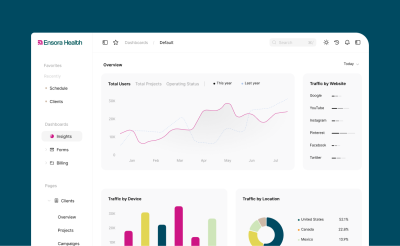Top psychology magazines and journals for therapists

Must read psychology magazines and journals
The field of psychology is fast-paced and constantly changing. Though this makes it an exciting field to study, staying up to date on the continuously evolving research can often prove to be overwhelming.
Doing a simple Google search for psychology magazines and journals returns hundreds of results and often leaves you wondering– “where do I even begin?” With thousands of new articles and papers being published each year in hundreds of different psychology journals and magazines, being well-read and up-to-date almost seems an impossible task.
Here at TheraNest we wanted to make it easier for you to stay on top of the research you need to know, that’s why we collected eight publications covering different aspects of the field of psychology that we think you should consider reading. Whether you are looking for a light read on topics that interest you or a deep dive into research-heavy perspectives, there is something for you on this list.
1. Psychological Bulletin
http://www.apa.org/pubs/journals/bul/
Psychological Bulletin is one of the most cited psychology journals out there. There’s a good reason for that. The Psychological Bulletin is a peer-reviewed academic journal that “publishes evaluative and integrative research reviews and interpretations of issues in scientific psychology.”
Focusing on both quantitative and qualitative aspects, the Bulletin provides readers a breadth of perspective on the research being done in the field of psychology, allowing readers to stay current on new and exciting breakthroughs in the field.
2. APS Observer
www.psychologicalscience.org/observer
The APS Observer is published by the Association for Psychological Science ten times per year. As the Association’s primary publication, the Observer serves to educate readers (and APS members) on matters affecting the research and application of psychology. Simultaneously, it also serves to provide commentary on national issues that are of interest to psychologist around the country.
As an organization, APS is focused on “advancing scientific psychology across disciplinary and geographic borders” while advocating for increased support for psychological research in public policy. Including both research-heavy and op-ed style pieces, the Observer is a great read for both casual downtime, as well as, for gaining a more nuanced understanding of the changes happening in the field of psychology.
3. APA Monitor on Psychology
In addition to the many journals and books the APA publishes every year, they also release a magazine, Monitor on Psychology, monthly. The goal of the Monitor is to keep psychology educators, scientists, and practitioners well informed on the breakthroughs happening in the field, while also highlighting how psychology influences society at large. Additionally, the magazine serves as an important bulletin for keeping APA members up to speed on association news and highlights.
4. Psychological Review
http://www.apa.org/pubs/journals/rev/
Widely regarded as the most influential and prominent psychology journal, the Psychological Review is a publication of the APA that was first released in 1894. Psychological Review is a peer-reviewed journal that only publishes articles that are making an important theoretical contribution to the field of scientific psychology. This publication is a must-read for individuals interested in learning about the newest theories that are driving research and innovation inside the field of psychology.
5. The Psychologist
/https://www.psychologytoday.com/
Given its mass appeal, Psychology Today is probably a magazine you’ve heard of even if you’re not an active pursuer of psychological magazines. Having been founded in 1967, Psychology Today is not only a popular read among therapists and psychologists, but rather it attracts anyone who is interested more generally in matters involving the human psyche.
Psychology Today features writers from a variety of backgrounds (psychologist, psychiatrists, medical doctors, anthropologists, sociologists, and science journalists) giving it its unique spectrum of writing that is easy to read even if you’re not trained in the field.
7. The International Journal of Psychoanalysis
The International Journal of Psychoanalysis (IJP) was founded in 1920 by Ernest Jones in collaboration with Sigmund Freud. This peer-reviewed academic journal, published six times a year, is largely regarded as the main international forum for information, discussion, and communication about the field of psychoanalysis.
With vast readership around the world, the IJP is the only psychoanalytic journal that regularly publishes extensive contributions from international authors. These contributions are translated at the expense of the journal. The IJP is a great read for individuals who want to expand their understanding of psychoanalysis and gain a more international perspective on the various topics related to it.
8. Scientific American Mind & Brain
https://www.scientificamerican.com/mind-and-brain/
Launched in 2004, Scientific American Mind came as a result of the rising interest and rapid advancement of brain sciences across the globe. As an offshoot of the already popular magazine Scientific American, Scientific American Mind quickly gained a mass following after its publication. The magazine, which was discontinued in 2017 as a standalone in 2017, concentrates on psychology, neurosciences, and their related fields. Scientific American Mind & Brain lives on as a dedicated category in the main Scientific American magazine and website. Itfeatures articles detailing the biggest breakthroughs in the realm of cognitive sciences in an easy to understand format.
Scientific American Mind & Brain is a great read for anyone who doesn’t want to spend the afternoon doing a deep dive into academic journals but is still looking to gain a deeper understanding of new developments in the field of psychology.
9. Psychotherapy Networker
https://www.psychotherapynetworker.org/
A must-read for therapists, this magazine blends clinical insight with personal reflection. It covers a wide range of therapy modalities, cultural issues, burnout, and practice-building tips. It’s well known for keeping therapy human, relatable, and practice-oriented.
10. Journal of Clinical Psychology
https://onlinelibrary.wiley.com/journal/10974679
A peer-reviewed journal covering a wide array of topics in clinical psychology, including assessment, diagnosis, interventions, and evidence-based practices. Ideal for therapists wanting deeper academic insight into clinical trends.
11. TherapyChat Podcast
https://therapychatpodcast.com/
With the rise of audio learning, podcasts like Therapy Chat offer accessible, diverse, and current conversations on trauma, somatic work, social justice, and clinical nuance. Great for learning on the go.
12. NIH/NIMH – Research and news
The National Institute of Mental Health publishes research updates, grants, and clinical trial information. It’s a great way to stay informed on policy, research funding, and emerging treatments.
13. Psychiatric Times
https://www.psychiatrictimes.com/
While more medical in tone, this publication often bridges psychiatry and psychotherapy, offering insights into medication management, comorbidity, and integrated care—important for therapists collaborating with psychiatrists.
14. PsyArXiv (preprints)
An open-access platform where researchers post preprints of psychology research before they’re peer-reviewed. It’s a great way to see cutting-edge developments months (or years) before formal publication.
So there you have it–a well-rounded list of psychology magazines and journals that’ll help you stay informed. Being well-read on the latest research and breakthroughs in the field of psychology helps you grow as a therapist and allows you to provide better care for your clients. However, if you’re stuck trying to manage your practice and handle piles of paperwork, you likely won’t have the time you need to stay up to date on new psychological developments.
Avoid getting bogged down by unnecessary work with TheraNest. TheraNest is an all-in-one practice management system that can help you save time by streamlining your billing and expediting your note-taking. TheraNest’s HIPAA compliant software gives you the time you need to do the reading you’ve been missing out on–try it free for 21 days.






